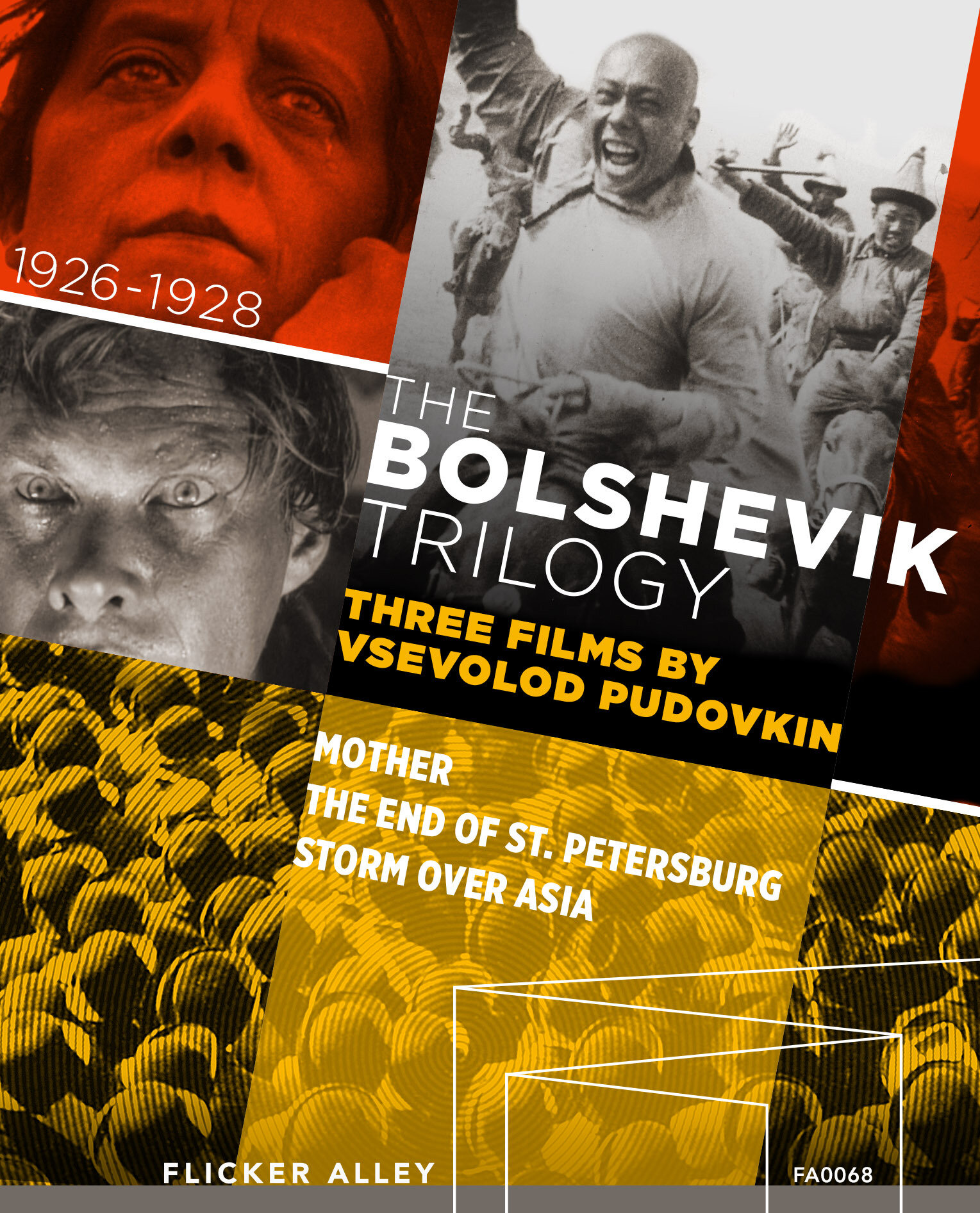GME Presents Silent Classic Films from Germany and the Soviet Union
/Two new digital publications expand GME’s offerings for academic use and study of classic silent films from abroad. THE CITY WITHOUT JEWS (1924) is a prescient and arresting German silent film about the persecution and deportation of the Jews, presaging the horrors of the Nazi era. Half a dozen other feature films made between 1919 and 1924 in Germany and Austria also focused on their plight: DER GOLEM (1919), LOVE ONE ANOTHER, 1922), and THE ANCIENT LAW (1923). Separately, this Blu-ray edition of THE BOLSHEVIK TRILOGY adds the works of Vsevolod Pudovkin to GME’s distribution of films by significant Soviet filmmakers for academic study and appreciation. This digital publication comprises this filmmaker’s cinematic trilogy MOTHER (1926), THE END OF ST. PETERSBURG (1927) and STORM OVER ASIA (1928), which collectively depict the tumultuous history of the Russian Revolution; CHESS FEVER (1925), Pudovkin’s short film about the Moscow chess craze, is presented as a bonus title on the Blu-ray edition.
Based on the controversial and best-selling novel by Hugo Bettauer, H.K. Breslauer’s 1924 film adaptation of THE CITY WITHOUT JEWS (DIE STADT OHNE JUDEN) was produced two years after the publication of the book, and only a decade before events depicted in the fictional story became an all-too-horrific reality. The film was produced in the context of the mass migration of Eastern European Jews during and after the First World War, primarily to Vienna and Berlin. The influx of refugees intensified latent anti-Semitism and the “Jewish question” became a subject of political debate. Set in the imaginary city of Utopia (a thinly disguised stand-in for Vienna), the story follows the consequences of an anti-Semitic law passed by the National Assembly forcing all Jews to leave the country. At first the decision is met with celebration, yet when the citizens of Utopia are confronted with the loss of the Jewish population—and the resulting economic and cultural decline—the National Assembly must decide whether or not to invite the Jews back. Conceived as a dark satire and stylistically influenced by German Expressionism (THE LAST LAUGH, 1924), the film also contains starkly realistic and eerily prophetic sequences, such as the shots of trains transporting deported Jews out of the city.
The implicit critique of Nazism in the film is one reason it no longer screened in Continental Europe after 1933, and no prints were thought to have survived. The 1933 fragment, found and published by the Filmarchiv Austria in 1991, was missing critical scenes. Now, thanks to the discovery of a nitrate print with the missing footage at a Paris flea market in 2015, as well as the comprehensive restoration work of the Filmarchiv Austria, this previously incomplete film can once again be appreciated in its ever-relevant entirety. The most definitive and authoritative digital edition of this vanguard film, THE CITY WITHOUT JEWS (DIE STADT OHNE JUDEN) features a newly commissioned score by the acclaimed silent film ensemble, pianist Donald Sosin and Klezmer violinist Alicia Svigals.
◊
After serving alongside his fellow Russians in the first World War, Vsevolod Pudovkin was radically altered by a life-changing screening of D.W. Griffith’sINTOLERANCE(1916), inspiring the young man to shift away from his studies in chemistry in order to pursue the cinematic arts. Among his contemporaries, he soon acquired the appellation “the Russian Griffith”, with rhythm, editing patterns and specific sequences in his films attesting to this claim. Pudovkin embarked on his narrative feature debut in 1926 with MOTHER, regarded by many as a masterpiece of the Russian silent era, and a showcase for Pudovkin’s emotive approach to editing. Pudovkin followed MOTHER’s tale of proletariat uprising with the Bolshevik-themed THE END OF ST. PETERSBURG and the Mongolia-set STORM OVER ASIA in 1927 and 1928 respectively, dazzling the world with a trio of masterful films centered around this tumultuous and revolutionary period in Russian history.
In MOTHER, a father and son find themselves on opposite sides of the Russian Revolution of 1905, leaving the mother torn between them. But when her husband is killed and her son is wrongfully imprisoned in a labor camp, the mother (played by Pudovkin’s wife, Anna Nikolaevna Zemtsova) is spurred into action, joining the revolutionaries in an effort to take on the Tsar's Army. Based on the novel by Maxim Gorky, Pudovkin’s debut narrative feature is both a riveting tale of revolution and a showcase for the young filmmaker’s cutting-edge techniques. This edition is presented with English intertitles, and features a piano score by Antonio Coppola.
THE END OF ST. PETERSBURG was created to commemorate the 10th anniversary of the October Revolution. The film tells the story of how the Bolshevik party came to power, but through the lens of a peasant boy’s journey from slave laborer to political revolutionary. Pudovkin employed a mix of classical and montage editing styles in order to produce a feeling of tension in the audience. The result is both a deeply emotional and stylized work of epic filmmaking. This edition is presented with original Russian intertitles and accompanying English subtitles, and features an orchestral score composed by Vladimir Yurovsky.
Set in a fictional British-occupied Mongolia, STORM OVER ASIA follows a young Mongolian fur trapper (Valeri Inkizhinov) who skirts a death sentence by falsely claiming to be a descendant of the great warrior Genghis Khan. Filmed largely on location in Mongolia, STORM OVER ASIA incorporates an authentic documentary feel into a stirring melodrama, distinguishing the film as a major accomplishment of Russian cinema. Scanned from 35mm preservation elements in a new 2K remaster by Lobster Films, this edition is presented with original Russian intertitles with English subtitles, and accompanied by an impassioned score by composer Timothy Brock, performed by the Olympia Chamber Orchestra.
This Blu-ray edition also includes as a bonus feature CHESS FEVER (1925), Pudovkin’s short film about the Moscow chess craze.
Watch for Upcoming News about
Selections from Our Fall Releases Schedule





